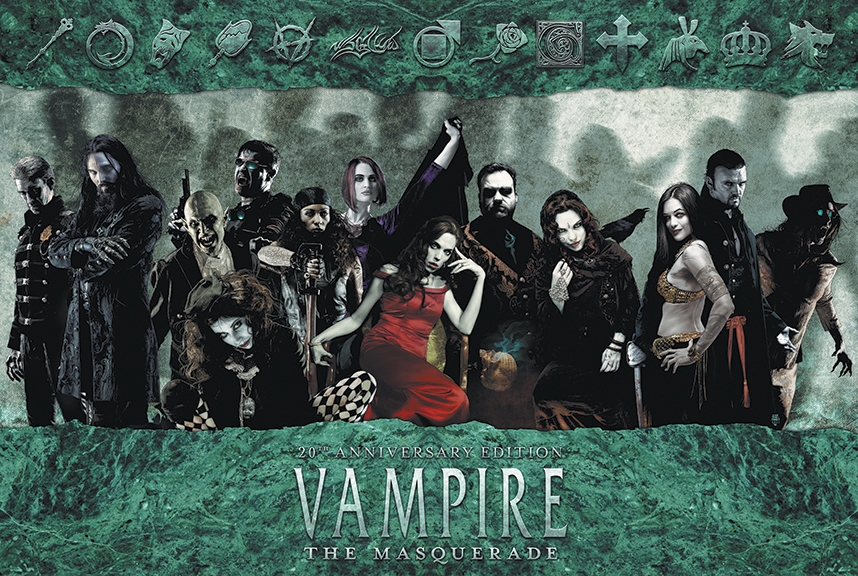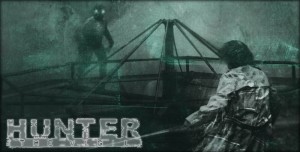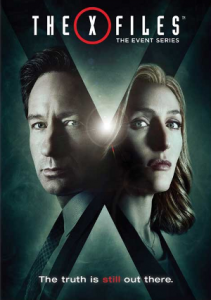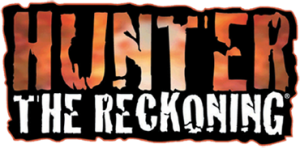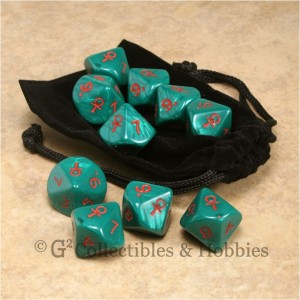Part 3, Part 1
In my last article on con games I talked about my experiences playing at Gen Con, and designing two con game modules with a focus on making them approachable to new players at Valor Con. I’ve talked a lot about the fun, exciting aspects of the con game format, but con games also come with some very unique challenges that I think are worth exploring. The con game format turns the subject of the Social Contract between gamers that is being explored in depth in Scott E. Vigil’s series on the subject on its ear, and much of that is connected to these specific challenges.
Scott talks in his last article about finding a space that’s acceptable to everyone, and choosing a game that everyone wants to play. At a con game all of those questions are swept away. The con tells you where you will be playing, likely including a specific table assignment. Whoever submitted the session pitch to the con decides what game will be played. This person may or may not be the storyteller. So in many ways the social contract for these games is templated and packaged for you when you take part in a con game. One of the topics Scott mentions in his first Social Contract of Gaming article was very much in play at my Valor Con games though, “Are there any topics or themes that are to be off limits in the role-playing setting?”.
There is a lot of talk in all corners of the internet about representation in media, both the need for more representation, and the damage that can be done by poor representation of groups that have a history of being stigmatized by negative stereotypes and systematic oppression. The tension between representation and quality representation weighed much more heavily on me than it normally does when I’m planning a game. The potential for sloppy representation to cause damage either through someone feeling unwelcome at my table, or by reinforcing a negative stereotype, albeit unintentionally with a completely random group of players is significantly higher than with the troupe I usually play with. I know my friends well and have an understanding of how they will engage with my content. At Valor Con, I was walking into a situation where I would be running Wraith: The Oblivion, which is one of the darkest games I have ever played, with a completely unknown group of players. As I developed my modules, the complexity of these dynamics became abundantly clear to me.
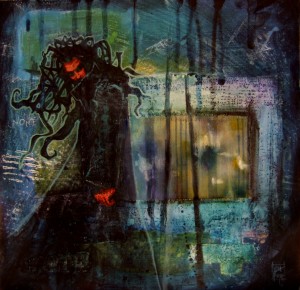
For readers who are not familiar with Wraith, you play ghosts who are still tethered to Earth by some form of unfinished business, which is a classic theme in ghost stories from several different cultures. The society of the dead though, is something entirely unique to Wraith, and poses a series of significant problems for the type of game I wanted to run. Wraith society is based on an economy of souls. There is a vibrant slave trade, and the vast majority of “physical” items in the underworld are made of smelted down souls. While it appears at first glance that this is cheap shock horror, there are very compelling reasons for this atrocity, and the game is deeply founded in inspecting the human potential for atrocity in high definition, and really grappling with it.
I am the only person in my immediate gaming circle who has ever run Wraith for more than a few sessions, so I know the lore fairly well, and I love it dearly because I love stories that shine a stark unflinching light on the darkness inherent in the human soul and don’t give into the aggrandizement of “humanity”.
I wanted to set the game in my neighborhood of Uptown, Chicago because Valor Con has a very strong local Chicago brand and I wanted to incorporate that brand into my games. Chicago is one of the most segregated cities in America, except for Uptown. In a city where almost everyone lives around other people who look more or less like they do, Uptown stands out as a diverse neighborhood with representations from a variety of nationalities, sexualities, and economic classes This is a big part of why I love living in Uptown as much as I do and I really wanted to highlight my neighborhood. I wanted to tell a story about Wraiths from the different generations, and communities that have built Uptown into the neighborhood it is, and who have connections to major changes in Uptown’s history. There is a large African immigrant community in Uptown and I was halfway through making the character I wanted to represent the local African Diaspora community when I stopped typing and thought about the core themes of Wraith and how they could very problematically interact with an African character. This was the weekend before the convention and there was no way I had the time to redesign everything before the Con.
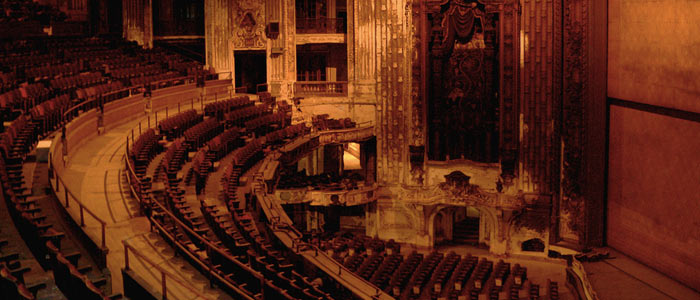
My game focused very specifically on soulforging and the commodification of souls that is common in the underworld. I wasn’t playing with the themes in Wraith that half justify those actions because no one is entirely good or evil in the Underworld. I was approaching soulforging and the Thrall slave trade as intrinsic evils, but I was still incredibly concerned about the story I was about to tell. I decided that I didn’t want to back away from the core themes of Wraith or accurate representation of Uptown because I was walking into difficulty territory. It was time to hold myself accountable to telling this story, even in a public venue like a game con properly. So the first thing I did was put a content warning at the top of the setting writeup that read:
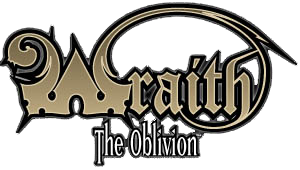 This is a game that deals with incredibly dark societal themes. It is fundamentally a game about the atrocity that lives deep in the human soul and can never be truly excised, it can at best be vigilantly managed. These themes include slavery, murder, xenophobia, and a literal commodification of the human spirit. I tried very hard to balance representing the myriad communities of Chicago’s Uptown neighborhood, where this session will be set, against those themes in an honest and respectful way, while leaning into the full atrocious horror that defines Wraith. I am open to critical feedback of areas where that goal might not be fully realized in these writeups, or in how the session ends up playing out. Please know that if you read the rest of this setting and the character writeups and would rather not engage in this session that is fine. If you want to engage, but would rather I downplay certain themes I am also 100% fine with that conversation as I feel it is essential to any positive Wraith experience.
This is a game that deals with incredibly dark societal themes. It is fundamentally a game about the atrocity that lives deep in the human soul and can never be truly excised, it can at best be vigilantly managed. These themes include slavery, murder, xenophobia, and a literal commodification of the human spirit. I tried very hard to balance representing the myriad communities of Chicago’s Uptown neighborhood, where this session will be set, against those themes in an honest and respectful way, while leaning into the full atrocious horror that defines Wraith. I am open to critical feedback of areas where that goal might not be fully realized in these writeups, or in how the session ends up playing out. Please know that if you read the rest of this setting and the character writeups and would rather not engage in this session that is fine. If you want to engage, but would rather I downplay certain themes I am also 100% fine with that conversation as I feel it is essential to any positive Wraith experience.
I know some people are not fans of content warnings, and I don’t want to open that whole conversation here, but in a con game setting where people want to have fun, and by the nature of the format may not know anything about the games they are sitting down to play, I feel this kind of notice about the primary themes being tackled is appropriate. This also made it clear to my players that I welcomed them bringing up concerns as the game session went on. When we sat down to play the game I explained the specific thematic juxtaposition I was concerned about.
I also went through my session plan before the con and made sure I wasn’t aligning the themes related to the commodification of human soul with my PC’s identity as a Black woman. While there were abductions, and soulforging of clearly unwilling victims in the game, they did not reflect any particular racial makeup, and as I opened my game session with a frank conversation about the themes I would be exploring, I felt I had prepared the most inviting space I could for this kind of horror session. I was entirely prepared to improv changes to the setting if anyone felt uncomfortable. As it turns out, no one did. We had a dynamic session, where the diverse relationships the characters had with the story and the setting came into play surprisingly well for a one shot game. It is worth nothing, the players ended up being all white men, but they were all very positive about the fact that I opened the game the way I did, and I received good feedback on how I structured the session.
Ironically, despite the content being seemingly less fraught than the Wraith game, I ran into more tricky game dynamics in my Changeling session than I did in my Wraith session. My Wraith game ended up being an excellent example of how to plan navigating difficult content in advance. In my next article I will talk about my Changeling session and how I went about navigating unexpected player discomfort mid-session, and what I will be doing differently in future con games based on that experience.
Victor Kinzer has been roleplaying since he first picked up Vampire Dark Ages in high school. He nabbed it as soon as it was released (he might have been lusting after other Vampire books for a while at that point) and hasn’t looked back since. He role plays his way through the vast and treacherous waters of north Chicago, and is hacking away at the next great cyberpunk saga at http://redcircuitry.blogspot.com/. He is an occasional guest on Tempus Tenebrarum (https://www.youtube.com/channel/UCvNp2le5EGWW5jY0lQ9G39Q/feed), and is working to get in on the con game master circuit. During the rest of his life he works in Research Compliance IT, which might inform more of his World of Darkness storylines than he readily admits.
*Note, all opinions are the opinions of their respective Authors and may not represent the opinion of the Editor or any other Author of Keep On the Heathlands.
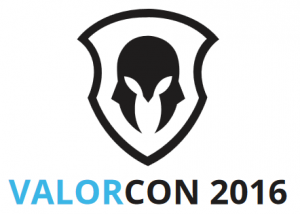

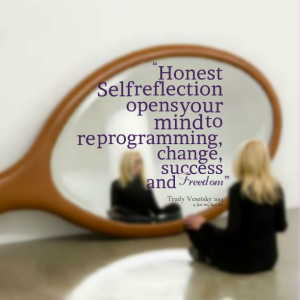

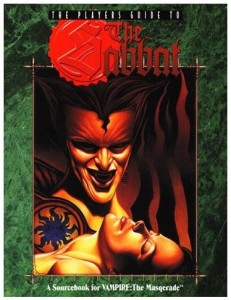

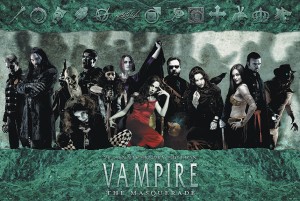
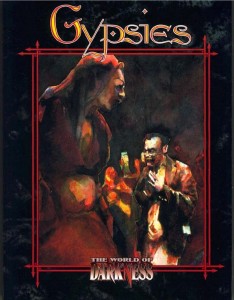 In our recent
In our recent 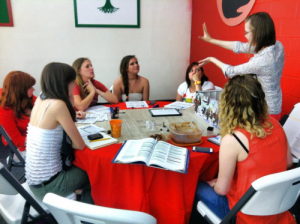 Welcome back to part two of the ongoing discussion on the social contract that exists in starting up a new tabletop RPG game. Last week we discussed the means in how to help determine the length and frequency that a game group will meet. So let’s recap that very briefly and then build off of that for this week’s topic: Where will the game be played and who will host the game?
Welcome back to part two of the ongoing discussion on the social contract that exists in starting up a new tabletop RPG game. Last week we discussed the means in how to help determine the length and frequency that a game group will meet. So let’s recap that very briefly and then build off of that for this week’s topic: Where will the game be played and who will host the game?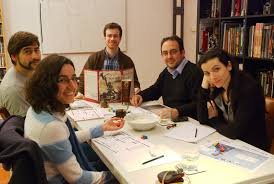
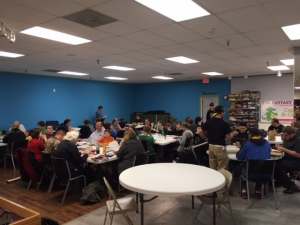
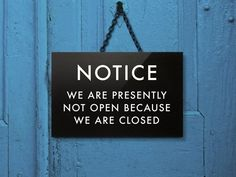



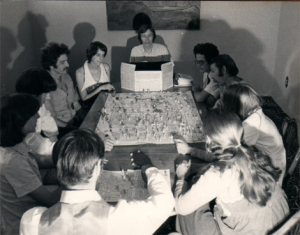

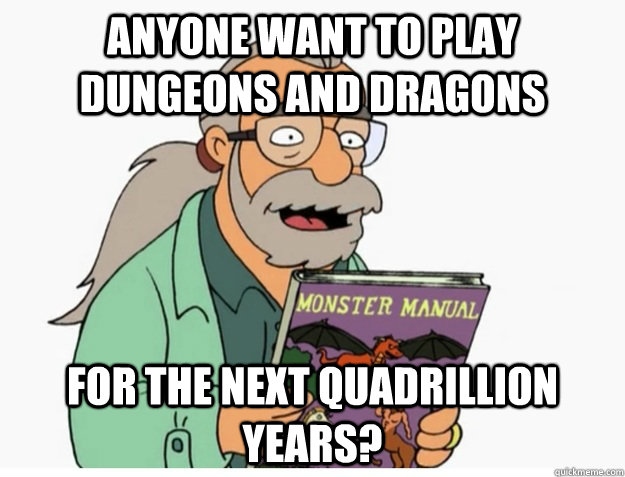


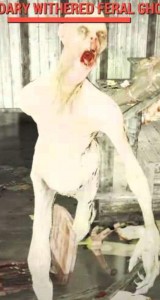
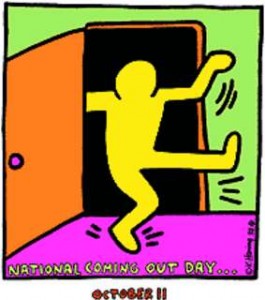
 The staff at White Wolf were willing to do an interview with the staff of columnists here at Keep On The Heathlands. Some of the following questions reference discussions had at The 25th Anniversary Grand Masquerade event in New Orleans over the Labor Day Weekend. Videos to
The staff at White Wolf were willing to do an interview with the staff of columnists here at Keep On The Heathlands. Some of the following questions reference discussions had at The 25th Anniversary Grand Masquerade event in New Orleans over the Labor Day Weekend. Videos to  Dhaunae De Vir (Manager of Availability – Business Development): Of course. We have just released the full-length
Dhaunae De Vir (Manager of Availability – Business Development): Of course. We have just released the full-length  Martin Ericsson (Lead Storyteller and Brand Architect): We’re imagining a world where the shadows are shrinking. The awakened monsters have always brushed shoulders, but the vastly different art direction and surface tonality (not to mention the slightly messy rules) of the different game lines have made crossovers run a risk of being a bit campy. This time we try to place them all in our own world, in dangerous and fascinating places where their rising conflicts makes WoD’s mysteries, political themes and menacing horror come to the forefront. For example, we are developing Werewolf in close parallel to Vampire, hoping to make the most of the tension between the cold corporate predation of the Camarilla elite and the just but oh-so uncontrollable just war of the Garou Nation. The games will be perfectly standalone, but still manage to link up in specific ways. We’re not imagining a game made for multi-creature parties, rather set them up as perfect antagonists and philosophical counterpoints, as well as rivals for the fate of humanity in desperate times.
Martin Ericsson (Lead Storyteller and Brand Architect): We’re imagining a world where the shadows are shrinking. The awakened monsters have always brushed shoulders, but the vastly different art direction and surface tonality (not to mention the slightly messy rules) of the different game lines have made crossovers run a risk of being a bit campy. This time we try to place them all in our own world, in dangerous and fascinating places where their rising conflicts makes WoD’s mysteries, political themes and menacing horror come to the forefront. For example, we are developing Werewolf in close parallel to Vampire, hoping to make the most of the tension between the cold corporate predation of the Camarilla elite and the just but oh-so uncontrollable just war of the Garou Nation. The games will be perfectly standalone, but still manage to link up in specific ways. We’re not imagining a game made for multi-creature parties, rather set them up as perfect antagonists and philosophical counterpoints, as well as rivals for the fate of humanity in desperate times.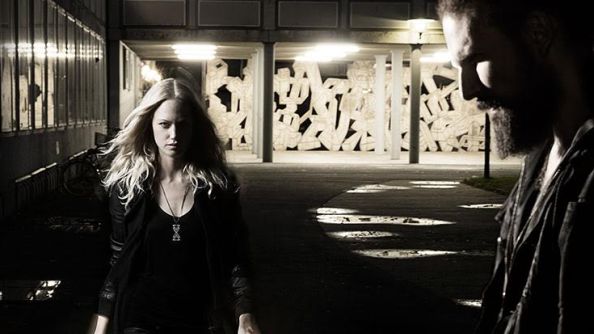


 Tobias (CEO White Wolf): Isn’t it about time that cultures around larps, RPGs and similar forms of entertainment finally get the credit they deserve? Look at the impact World of Darkness had on the modern vampire and werewolf myth today established in numerous film, television and other forms of entertainment. This is serious work by great authors and we do appreciate and applaud the recognition of it.
Tobias (CEO White Wolf): Isn’t it about time that cultures around larps, RPGs and similar forms of entertainment finally get the credit they deserve? Look at the impact World of Darkness had on the modern vampire and werewolf myth today established in numerous film, television and other forms of entertainment. This is serious work by great authors and we do appreciate and applaud the recognition of it.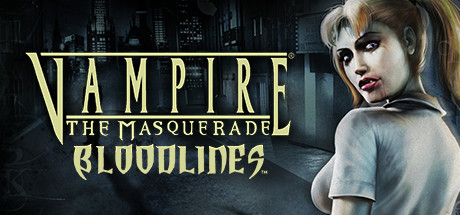


 Tabletop RPGs don’t sidestep all these problems, but benefit from organizing games around a single group of people. Navigating smaller social spaces affords a greater flexibility in how game sessions develop: fewer people are needed for consensus. There’s irony in a big draw of LARP – the social aspect, – being one of its bigger problems to tackle.
Tabletop RPGs don’t sidestep all these problems, but benefit from organizing games around a single group of people. Navigating smaller social spaces affords a greater flexibility in how game sessions develop: fewer people are needed for consensus. There’s irony in a big draw of LARP – the social aspect, – being one of its bigger problems to tackle.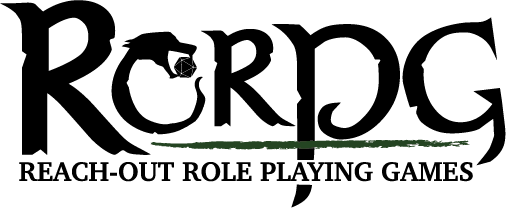
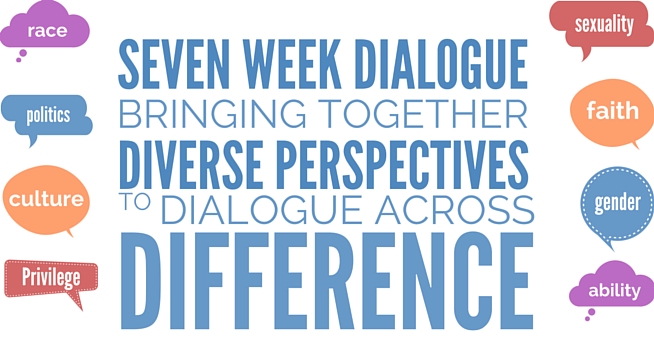
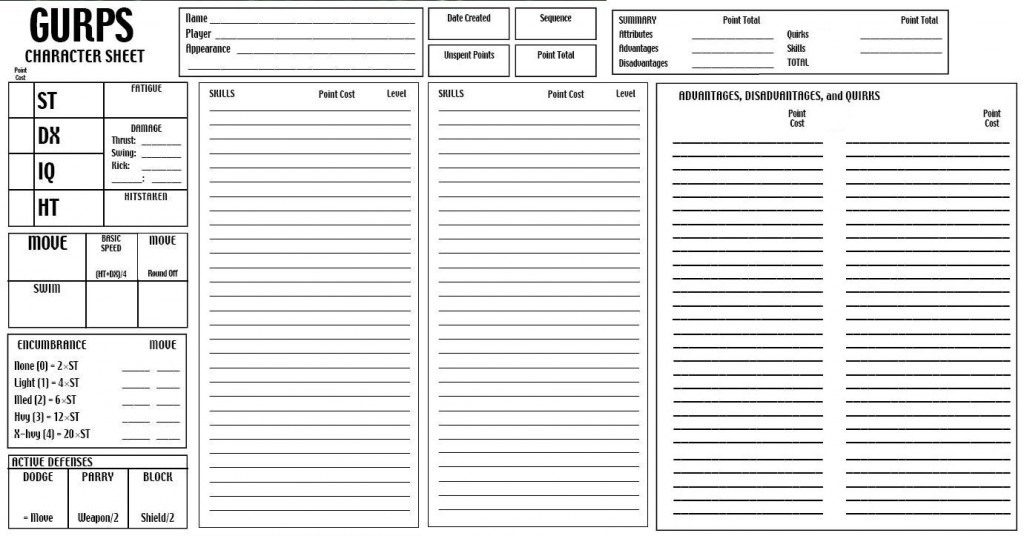

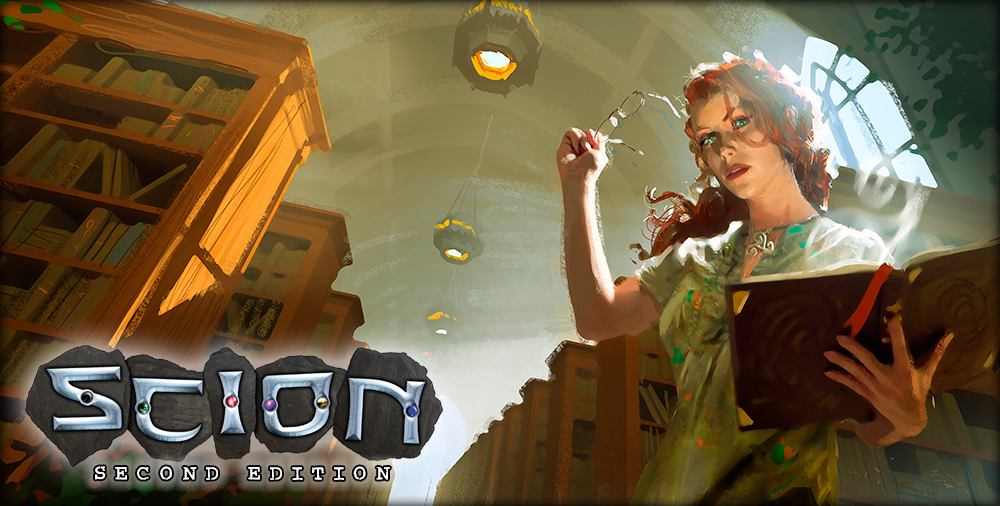

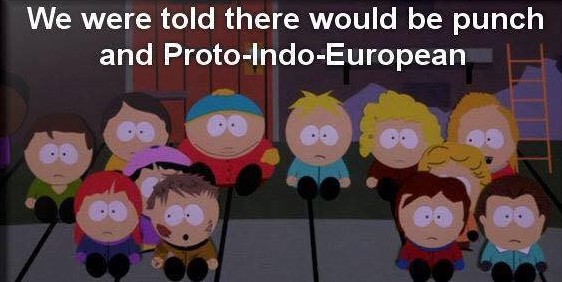

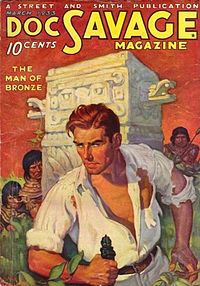 This Core Mechanic has waves throughout the rest of the basic system. If you fail, but don’t botch, you collect Momentum, which you can save up to use Skill Tricks. These are cool cinematic effects that a character can add to their action. The diving two-footed kick while shooting down a row of bad guys? That’s probably a Skill Trick that cost some Momentum to pull off. The Storypath system is designed to be flexible for scale though, if you want to play Superman 4-color style Super’s you can do that, or you can play gritty detective tales that evoke The Shadow, or Doc Savage.
This Core Mechanic has waves throughout the rest of the basic system. If you fail, but don’t botch, you collect Momentum, which you can save up to use Skill Tricks. These are cool cinematic effects that a character can add to their action. The diving two-footed kick while shooting down a row of bad guys? That’s probably a Skill Trick that cost some Momentum to pull off. The Storypath system is designed to be flexible for scale though, if you want to play Superman 4-color style Super’s you can do that, or you can play gritty detective tales that evoke The Shadow, or Doc Savage.